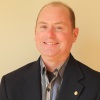In an effort to “Pay It Forward,” SE University is happy to announce our “SEU Speaker Inspires” program in which our speakers can designate a charity/organization of their choice for SE University to make a donation to help improve our world.

Janel Miller
University of Wisconsin – Madison
In August 2015, Janel Miller from University of Wisconsin – Madison gave a talk on Designing Slides for Effective Project Presentations. She chose the Leukemia & Lymphoma Society (http://www.lls.org) for her SEU Speaker Inspires donation.
Thank you, Janel, for helping structural engineers with your SE University session, and for your designation of the Leukemia & Lymphoma Society as our SEU Speaker Inspires Organization of the Month!
04 Jan 2016
SEU Speaker Inspires Organization of the Month: Delaware Valley Association of Structural Engineers (DVASE)
In an effort to “Pay It Forward,” SE University is happy to announce our “SEU Speaker Inspires” program in which our speakers can designate a charity/organization of their choice for SE University to make a donation to help improve our world.

Mike Mota, PhD, PE
CRSI
In December 2015, Mike Mota, PhD, PE from CRSI gave a talk on Vibration of Reinforced Concrete Floor Systems. He chose the Delaware Valley Association of Structural Engineers (DVASE – http://www.dvase.org) for his SEU Speaker Inspires donation*.
Mike said the following about DVASE, “DVASE offers a forum through educational activities for the advancement of the structural engineering profession in the Delaware Valley.”
Thank you, Mike, for helping structural engineers with your SE University session, and for your designation of DVASE as our SEU Speaker Inspires Organization of the Month!
*As DVASE cannot accept charitable donations, SE University purchased a supporting sponsorship to DVASE to contribute through the SEU Speaker Inspires program.
In an effort to “Pay It Forward,” SE University is happy to announce our “SEU Speaker Inspires” program in which our speakers can designate a charity/organization of their choice for SE University to make a donation to help improve our world.
Throughout 2015, Betsy Werra from E.L.Werra Consulting presented SEU BIM forum sessions for SE University. She chose the National Alliance on Mental Illness (http://nami.org) for her SEU Speaker Inspires donation.
Betsy said the following about the National Alliance on Mental Illness, “Many people today have been affected with a mental illness condition but it seems our society does not understand how this affects all involved. My sister was diagnosed with Bi-polar at age 19, and it has been a continuing battle for her to take the right steps in healing her mind with the proper treatments that are available to her. Awareness, love, compassion, support, and willingness to take on the challenges to help a person with a mental illness is also extremely hard on family, friends, and the community. More needs to be done to help not just the individual but also the ones that love them and want to help them, and because of organizations such as NAMI, I know my sister has a chance.”
Thank you, Betsy, for helping structural engineers with your SEU BIM Forum sessions, and for your designation of the National Alliance on Mental Illness for your SEU Speaker Inspires Organization!
by Kristine Kussro
You never get a second chance to make a first impression. We have all heard this before and know how important first impressions are. This holds true for presentations as well. As a leader, you need to deliver your presentations and messages with great precision. What we do in business often comes down to how we work a room, how we engage with people, and how we communicate to get our message across. So what is the art of making an engaging and memorable presentation? Here are just a few key points to help you make that great impression when making a presentation.
Begin With the Unexpected
The first 30-60 seconds of a presentation are the most critical. The audience is critically scrutinizing you right from the start. You need to quickly set the expectations for yourself. You need to capture the attention of your audience immediately or you will be fighting an uphill battle for the rest of the presentation trying to engage your audience. A great example of grabbing your audience is Steve Job’s Commencement Address at Stanford University in 2005.
“I am honored to be with you today at your commencement from one of the finest universities in the world. Truth be told, I never graduated from college, and this is the closest I’ve ever gotten to a college graduation.”
Create a Strong, Clear Story
When you open with a personal story that relates to your topic, the audience is instantly drawn in. Everyone wants to hear a personal narrative of how you succeeded or even failed along the way, and how you rose above all adversity to get to where you are today. Steve Jobs continued his commencement address captivating his audience with his enthralling personal narrative.
“Today, I want to tell you three stories from my life. That’s it, no big deal-just three stories. The first story is about connecting the dots. I dropped out of Reed College after the first six months, but then stayed around as a drop-in for another eighteen months or so before I really quit. So why’d I drop out? It started before I was born…”
Less is More
Do not overwhelm your audience with an abundance of slides! Sometimes as engineers we tend to think that more information is better. The more slides the better! In the corporate world this is known as “death by slides”. This creates blank stares, people checking their phones, and sometimes an afternoon nap for your audience. Also, nothing kills a slide as much as clutter. Eye charts are not allowed! Make your slides clear and concise.
Know Your Audience
Do your homework. It is important that you spend time finding out who is in your audience. What are their main interests? Why are they coming to hear you speak? What are you giving them to take away that is of value? If you know your audience you will surely engage them. Make eye contact. The difference between a good presentation and a great presentation is when your participants feel like you are speaking directly to them. Give them a reason to come back.
Call to Action
So you have delivered a great presentation to an auditorium full of people and they are impressed! What now? Always allow several minutes for questions and answers. Take the time afterwards to stay and talk to people individually. And always make your twitter, website, and email address available for questions and comments that come up later. Always leave your audience wanting more!
Steve Jobs closed his commencement speech with the words “Stay Hungry. Stay Foolish.” This is great food for thought. It leaves the audience with a challenge. Never be satisfied and always push yourself. Strive to do things people say cannot be done.
Obviously, few of us will get the opportunity to give commencement addresses at places like Stanford University, but the basics of presenting still apply. If anyone has any unique attention grabbing presentation openers or creative ways to keep your audience engaged, please email them to me at Kristine.Kussro@LearnWithSEU.com.
To see Steve Job’s entire inspirational commencement speech, visit the following website: http://news.stanford.edu/news/2005/june15/jobs-061505.html
In an effort to “Pay It Forward,” SE University is happy to announce our “SEU Speaker Inspires” program in which our speakers can designate a charity/organization of their choice for SE University to make a donation to help improve our world.
In October 2015, Carol Drucker, SE, PE from Drucker Zajdel Structural Engineers gave a talk on Understanding Load Paths for SE University. She chose the Structural Engineers Foundation (http://seaoi.org/sef.htm) for the donation of the month.
Carol said the following about the Structural Engineers Foundation, “SEF is dedicated to the advancement of structural engineering through free lectures and the funding of scholarships, research, and publications.”
Thank you, Carol, for helping structural engineers with your SE University session, and for your designation of the Structural Engineers Foundation as our SEU Speaker Inspires Organization of the Month!
23 Oct 2015
Don’t Simply Survive, THRIVE
by Kristine Kussro
It’s October! We know this because of the beautiful colors that fall and October brings. The vibrant reds, oranges and yellows of the changing trees create spectacular scenery and brilliant landscapes. But we have also come to know October for another color: PINK! October is National Breast Cancer Awareness Month. So we see pink and pink ribbons everywhere! Pink ribbon apparel is the rage all of a sudden come October. All the sporting goods stores become flooded with pink ribbon apparel. We even see the college and professional athletic teams go all out with pink shoes and accessories.
Did you know that 1 in 8 women will be diagnosed with breast cancer? Almost 300,000 new cases of breast cancer will be diagnosed in the U.S. this year alone. Worldwide there will be 1.3 million cases diagnosed. Breast cancer will take over 40,000 lives in the U.S. this year and 448,000 worldwide. For women, breast cancer is by far the most common cancer.
With these statistics, Breast Cancer Awareness Month, which is marked in countries across the world every October, has become more decorative than ever before. The goal is to increase attention and support for the awareness, early detection and treatment of breast cancer. With insufficient knowledge of the exact causes of breast cancer, early detection of the disease remains the cornerstone of breast cancer control. When breast cancer is detected early, and if adequate diagnosis and treatment are available, there is a good chance that breast cancer can be cured. If detected late, however, curative treatment is often no longer an option. So we must spread the word! Early detection is paramount. And education is the key to early detection. Mammograms and clinical and self-examinations are critical in preventing breast cancer and should be regularly discussed with each woman’s physician. Remind the women that you love, wives, mothers, sisters, daughters, and friends to be diligent!
I am the perfect example of diligence. And pink is my color. I am a three year breast cancer survivor! Diligence saved my life. But cancer changed my life. I was diagnosed in early 2012 with stage III breast cancer. My journey was long but not without cause. Faith, family, and friends got me through. My husband was my rock. My children: my reason to live. But what did I learn on my journey? I learned what true strength and courage are when you are facing paralyzing fear. Life is short and precious. And tomorrow may not come. But today I can make a difference! It seems so simple. But in our busy lives we tend to ignore what seems obvious. My advice to everyone, take time to smell the coffee. Take that vacation with your family that you never seem to have time to do. Look for that new job, the one you’ve always dreamed of. Quit procrastinating because the current one seems safe. Go bungee jumping! Go skydiving! Be STRONG! Be COURAGEOUS! Be BOLD! My motto: “Don’t simply survive, THRIVE!”
My family’s journey has been long. But life happens and we can’t change it. Would I want to change it? Probably not. Adversity makes us stronger. It builds character. And as my husband so eloquently put it “We’ve had more laughter than tears along the way.”
Happy October! Think PINK!!
Please feel free to e-mail me at Kristine.Kussro@LearnWithSEU.com with any comments.
In an effort to “Pay It Forward,” SE University is happy to announce our “SEU Speaker Inspires” program in which our speakers can designate a charity/organization of their choice for SE University to make a donation to help improve our world.
In September 2015, Emily Guglielmo, SE, from Martin/Martin, Inc., gave a talk on Clarifying Frequently Misunderstood Wind Provisions for SE University. She chose Bridges to Prosperity (www.bridgestoprosperity.org) for the donation of the month.
Emily said this about her choice, “Bridges to Prosperity believes that every person has a right to safe access and has engineered innovative, scalable approaches to act on that belief. As an engineer, it’s inspiring to see other engineers using their passion for the profession to implement real change in the world.”
Thank you, Emily, for helping structural engineers with your SE University session, and for your designation of Bridges to Prosperity as our SEU Speaker Inspires Organization of the Month!
31 Aug 2015
“If There is Any One Secret of Success…”
In the Dale Carnegie Training book “How to Enjoy Your Life and Your Job“, the following “profound” statement is made…
“So the only way on earth to influence other people is to talk about what they want and show them how to get it.”
It may sound simple, but it can be harder to implement. Give it a try today and send us your stories of how it was successful for you.
In an effort to “Pay It Forward,” SE University is happy to announce our “SEU Speaker Inspires” program in which our speakers can designate a charity/organization of their choice for SE University to make a donation to help improve our world.
In July 2015, Whitney McNulty, PE, from BL Companies, gave a talk on Flexural Design of Single Angle Members for SE University. He chose the Juvenile Diabetes Research Foundation (http://www.jdrf.org/) for the donation of the month.
Whitney said this about his choice, “I chose the Juvenile Diabetes Research Foundation for personal reasons. Both of my children have juvenile onset diabetes, also known as type 1 diabetes. This isn’t the diabetes for which you see all of the drug commercials on TV. My son who is now 22 developed the disease when he was 11. My daughter, now 19, became diabetic when she was 10, less than one month from the anniversary of my son’s date. When my son became diabetic my wife and I had no history of diabetes in either of our families. The doctors told us there was less than a 2% chance that siblings who are not twins will both develop the disease, so we thought that our daughter was safe. Now both of my children have insulin pumps that they wear 24 hours a day, everyday. They test their blood at least 7 times a day, and we have experienced very high and low blood sugars. We’ve had a few visits from 911 personnel, including one time when the police had to break down a door to get into my house to help my son. You can’t tell from looking at my children that they are diabetics, unless you notice their pumps, and they try to not let the disease limit their lives. My prayer is that a way to prevent this condition is discovered, and that in the meantime, the lives of type 1 diabetics can be made easier by the work done by the JDRF.”
Thank you, Whitney, for helping structural engineers with your SE University session, and for your designation of the Juvenile Diabetes Research Foundation as our SEU Speaker Inspires Organization of the Month!
29 Jul 2015
The Value of Being Patient
by Lisa Willard, PE
In the Dale Carnegie Training book “Make Yourself Unforgettable”, one of the chapters is devoted to patience, defining it as “the ability to wait without experiencing anger, anxiety, or frustration.” One thing I find interesting about patience is that it is something over which I have complete control. No one else can make me impatient; someone else’s actions may lead to me being impatient, but I have the ability to define my attitude, and can choose to be patient in the situation.
As an example, someone may not return a call promptly, and I need information from that person before I can proceed with something I’m working on. If I choose to be impatient, I waste time and mental energy being upset, not to mention the fact that I might eventually “blow up” at the person by phone or in an email. If I choose to be patient, I can refocus my mind and time on another project or task, taking advantage of that time to get other things done. In addition, I avoid a confrontation with the person that might affect our relationship.
As a young professional, I made a reservation for a non-smoking room at a hotel, and when I arrived at the hotel (at earlier than normal check in time), there were no non-smoking rooms available. My first instinct was to react with frustration – after all, I had made a reservation (has everyone seen the Seinfeld clip where Jerry arrives to pick up his rental car, but there are no cars left?). My boss quickly pulled me aside, and asked if, based on my attitude, I thought the front desk staff was going to be willing to help me get a non-smoking room? I realized that he was right – I needed to exhibit patience in this situation. If I were willing to wait an hour or two, a non-smoking room would likely be available. I returned to the front desk, apologized for my behavior, and agreed to wait for a few hours. I ended up with a non-smoking room, and rest of the trip went smoothly.
I learned a powerful lesson that day, one that has served me well over the years. People appreciate when others do not react with impatience (anger, anxiety, frustration), and are typically more willing to be helpful in that situation. What are some situations where you have seen patience (or impatience) exhibited, and what was the outcome in those situations? Let us know in the comments below!





